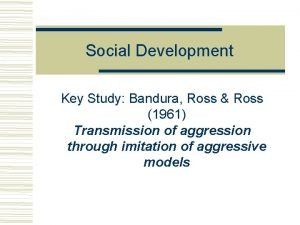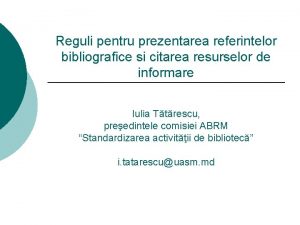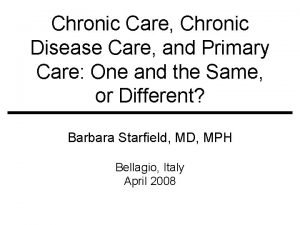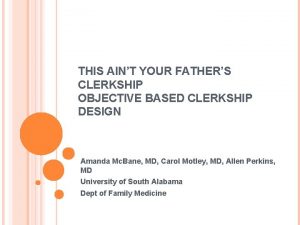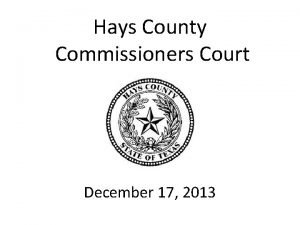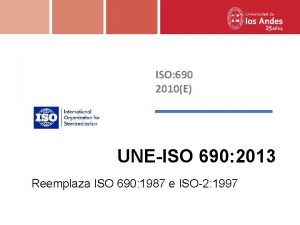Chronic Care Clerkship CONJ 690 Ross Hays MD










- Slides: 10

Chronic Care Clerkship (CONJ 690) Ross Hays, MD Clerkship Director Undergraduate Medical Education Rehabilitation Medicine

Exposing Students to 4 Content Areas Chronic Care Rehabilitation Medicine Geriatric Medicine Palliative Care Medicine Acute and Chronic Pain HOW does this happen? 1. Choose a Clinical Focus (before the clerkship begins) 2. Attend Didactics on First Day and Last Day 3. Clinical Work Tuesday – Friday

Rehabilitation Medicine 1. Functional Assessment 2. Assessment and Diagnostic Methods 3. Medical Management 4. Disability and Society

Palliative Care Medicine • Recognizing when it is appropriate in the trajectory of a chronic illness to begin the Palliative Care Discussion. • Conducting the Discussion regarding Palliative Care in an effective and humane manner. • Individualizing a Palliative plan of care for a singular patient and family.

Geriatric Medicine • Understand the complexity of geriatric issues, that impact functional status and site of care. • Appreciate the role of interdisciplinary providers in developing comprehensive patient assessments and establishing therapeutic goals in caring for older patients. • Learn Geriatric Assessment (CGA) – ADL, IADL, GDS, MMSE, ‘get up and go testing’) and targeted strategies for patients who benefit most from such assessment.

Acute and Chronic Pain • Gain Experience in assessing and treating both acute and chronic pain. • Learn the basics of opioid medication management. • Practice the biopsychosocial model of pain.

Course Goals and Objectives • Sensitively and effectively communicate a poor prognosis to patients and families. • Be involved in a team approach to care of patients with chronic illnesses. • Identify and perform appropriate clinical and functional assessments of patients with chronic disease, disability, and life limiting illness. • Identify how systems of care affect the delivery of care for patients with chronic disease, disability, and life limiting illness. • Apply basic concepts in designing a care plan for patients with chronic disease, disability, or life limiting illness. • Use approaches to patients and families that support appropriate management of medical conditions outside of the hospital and clinic setting. • Elicit and understand the patient and family's perspective on the management of medical issues, including individual preferences, cultural perspectives, and religious beliefs as they affect the perception of care.

Clerkship Pieces p u ro s • P n o atient i s Interac s u tions sc i D G • • Clinical Experiences • PT /OT • Psy s t s i g o chol • Ho spi ce

Grading Standards • 70% Preceptor Evaluation • 30% Home Visit Write-up & Presentation

Have Question’s? Phaedra Allen, Clerkship Coordinator pallen 2@u. washington. edu http: //courses. washington. edu/conj 690/


